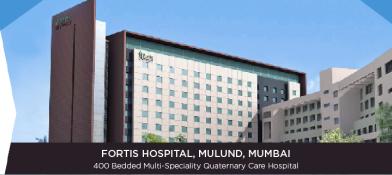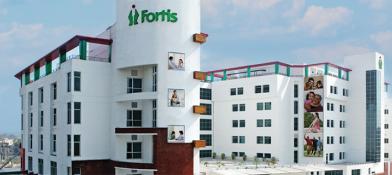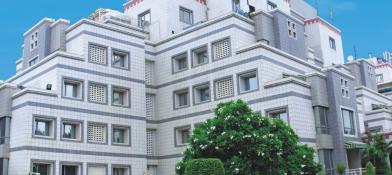Hormone therapy for Prostate Cancer
Overview
Hormones are substances that are produced by certain glands in our body to control the actions of cells or other organs. The male hormones produced in men are called the androgens, which are testosterone and dihydrotestosterone (DHT), which are produced by the testicles and adrenal glands. These androgens help in the average growth and function of the prostate gland in men to secrete semen.
Prostate cancer is a considerable health problem in men. Androgens help in the growth of both standard and cancerous prostate cells to grow. They bind to the receptor proteins on the surface of prostate cells and activate them. Specific genes that cause the growth of prostate cells are produced due to the activation of the receptors leading to cancer progression.
Hormone therapy (HT) for prostate cancer work
Hormone therapies control prostate cancers by decreasing androgen levels or blocking their action. This kills the prostate cells or slows their growth. Hormone therapy is done in the following ways:
- Treatments that reduce androgen production from the testicles or other glands.
- Treatments that block Androgen action
Treatments that reduce androgen production by the sex organs
These are the most used and the first type of HT for prostate cancer which is also called as androgen deprivation therapy (ADT) and is done in two different ways, surgical or medical castration.
Surgical Castration
Orchiectomy is a permanent and irreversible procedure where one or both testicles are removed, which reduces 90-95% of blood testosterone levels. Another irreversible procedure is subcapsular orchiectomy, which removes only the tissue that is producing androgens rather than the entire testicle.
Medical Castration
This therapy utilizes medications known as luteinizing hormone-releasing hormone (LHRH) agonists, which inhibit the secretion of luteinizing hormone by the pituitary gland. Low androgen levels in the body stimulate the hypothalamus to release LHRH, thus stimulating the pituitary gland to produce luteinizing hormone, which promotes the testicles to produce androgens. However, continued levels of LHRH agonists stop the pituitary gland from producing luteinizing hormone, leading to no androgen production by testicles.
Another method involves LHRH antagonists that prevent LHRH from binding to pituitary gland receptors, which control the secretion of luteinizing hormone that stops the testicles from producing androgens.
Using estrogen hormones is another method to inhibit androgen production by the testicles. However, due to their side effects these are rarely used today in the treatment of prostate cancer.
Treatments that block androgen production in the body
This procedure includes using drugs like Androgen synthesis inhibitors that prevent the production of androgens by all tissues, like the adrenal glands and prostate cancer cells that produce them. Though the androgens are made in very minute quantities, they support the growth of some prostate cancers. Hence, androgen synthesis inhibitors are used. They inhibit enzymes in testicular, adrenal, and prostate tumor tissues.
Hormone-sensitive and Hormone-resistant prostate cancers
Hormone-sensitive prostate cancers are those that respond to hormonal therapies. These are also called castration sensitive, androgen-dependent, or androgen-sensitive. Hormone-resistant prostate cancers are when prostate cancers eventually stop responding to hormonal therapies. They are also called castration (or castrate) resistant.
Treatment for Hormone-sensitive prostate cancers
Hormone-sensitive prostate cancers are treated in various ways by using HT. Men diagnosed with early-stage prostate cancer at intermediate or high risk of recurrence often receive HT before, during, and after radiation therapy or prostate surgery. It is also used as a standard treatment after radiation therapy or prostate surgery for men who already had a recurrence (relapse) as confirmed by X-rays and also for those where the prostate cancer is spread to other areas of the body. It is also used to prevent local symptoms in localized prostate cancers in whom surgery or radiotherapy cannot be done.
Treatment for Hormone-resistant prostate cancers
Hormone-resistant prostate cancers are treated by completely blocking androgen receptors, stopping the synthesis of male hormones, repairing the damaged DNA, chemotherapy, immunotherapy, and some new radiopharmaceutical drugs.
Another method of HT is by giving it intermittently. This can slow down the resistance to treatment, keep the person out of side effects, and improve the quality of life.
Benefits of HT
HT delays the disease progression and increases survival chances. However, it has its own set of side effects and risks.
Side effects and risks of Hormonal Therapies
As hormones can affect organs other than the prostate too, they are associated with side effects like loss of interest in sex, hot flashes, loss of bone density and bone fractures, loss of muscle mass and strength, altered blood lipid levels, weight gain, mood swings, fatigue and growth of breast tissue. Certain antiandrogens affect the nervous system and liver. Estrogens can increase cardiovascular risk.
Exercise reduces side effects like bone loss, muscle loss, weight gain, fatigue, and insulin resistance. Bone mass during long-term hormone therapy can be reversed by drugs to slow or reverse this loss and increase bone mineral density. The effects of side effects on sexual and emotional health due to low androgen levels will gradually diminish once hormone therapy is discontinued.
Efficacy/Success of HT
It is difficult even for doctors to predict how long HT will be effective for prostate cancer. Therefore, men undergoing HT are regularly tested for prostate-specific antigen levels (PSA) in their blood. An increase in PSA levels indicates the growth of prostate cancer. A continuous rise in PSA levels with successful hormone therapy is an indicator of resistance to hormone therapy.
Conclusion
HT therapy in the form of surgery or medicine is used to reduce the effects of prostate cancer in men. This targets the androgen hormones to delay cancer progression by reducing androgen production and blocking their action. Despite the side effects, it has the advantage of increasing survival chances, but careful management and monitoring of treatment efficacy should be done through PSA testing.
































